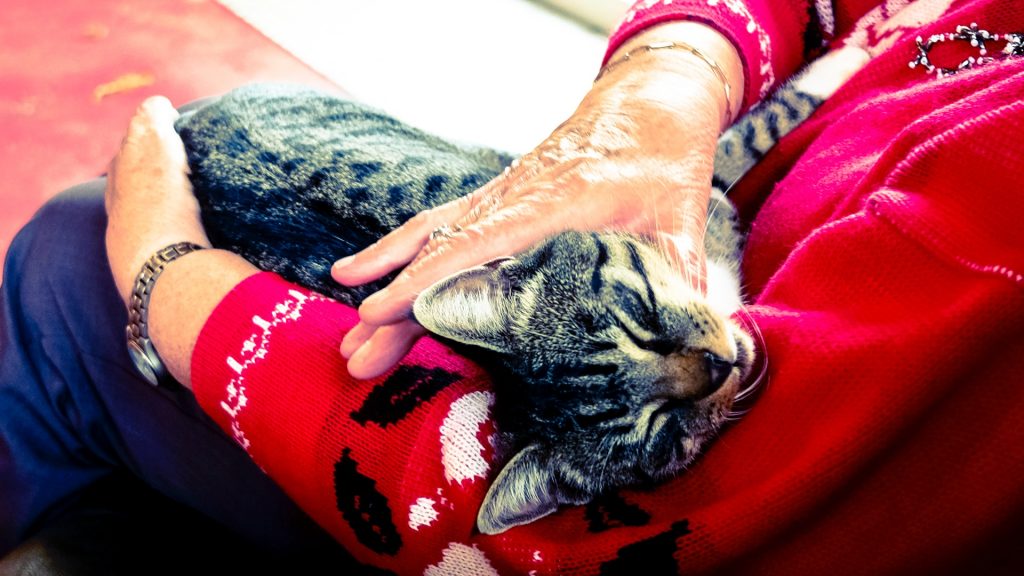Pets for Dementia Patients: Challenges and Benefits

People love their pets, and with good reason. They can provide unconditional love, be a source of comfort, and are generally fun to be around. Be it a dog, cat, fish, lemur, lizard, otter, or porcupine, a pet can be as cherished as a family member, and just as important to our well-being. However, when we are stricken with a severe illness like Alzheimer’s disease or another form of dementia, the role of pets may become more complicated.
Having dementia does not mean that you have to give up your pet, but it does require some thought and planning. Ideally, people in this situation will have gained an early diagnosis of their condition to allow for more preparation time, as well as more quality time to spend with their furry (or scaly) friends. Using a self-assessment tool like the BrainTest® app would be advisable for anyone who is at risk for dementia, both for their own well-being and to make sure their pets continue to receive proper care.
Pets During Early-Stage Dementia

Image via Pixabay
The first thing a person with dementia must deal with is the reality of their diagnosis. This can be an incredibly difficult process that conjures up a lot of emotion. Most pets are great at providing emotional support, either by actively consoling us (like dogs and, admittedly less often, cats) or by simply being there at our side. When the initial shock has subsided, it will become more apparent that there is still plenty of life left to live, and having an active pet, like a dog, could make it easier to move past any initial social anxieties that could arise from the diagnosis.
During the early stages of dementia, most people will benefit from planning for their future in terms of household management and care needs. This is also a good time to consider how their pet(s) will be taken care of as the disease progresses. Depending on the type of dementia and its specific progression, certain abilities can be expected to deteriorate over time (memory, judgment, mobility, etc.). As a person becomes more functionally disabled, they will likely need an increasing amount of assistance maintaining both their personal care and care for their pets. Enlisting a friend or family member to assist in these tasks is a common solution.
Pets During Mid and Late-Stage Dementia
As long as the animal can be properly cared for, it is completely fine to have a pet during the middle and later stages of dementia. During the middle stages, as the symptoms become more severe, the role of caretakers will become more important. In some cases, outside services will need to be enlisted (such as dog walkers) in order to ensure that the pet remains happy and healthy. It may also be useful to make a list of the animal’s favorite products, like cat food brands, fish tank accessories, and so on, to prevent any confusion should communication become difficult due to the disease.
Friends for Life
Again, as long as they are being taken care of, there is no reason to not have a pet throughout the entire course of dementia. Pets are generally happy to be near their owners, and their mere presence is the source of many medical benefits, like decreased blood pressure and heart rate, lowered cortisol (the hormone associated with stress), increased serotonin (a “feel-good” chemical), along with lessened anxiety and depression. For these reasons, it is common for long-term care facilities with dementia patients to have one or more animals in-house (usually cats, due to ease of care).

